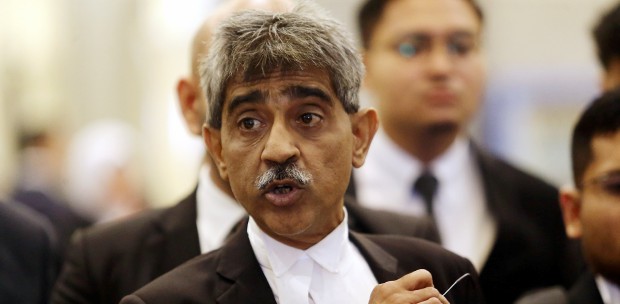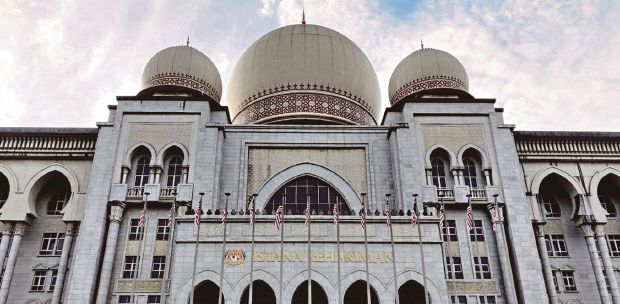PUTRAJAYA: The Federal Court today held that the National Security Council Act (NSCA) 2016 is valid law.
The Apex bench ruled in a 5-2 decision on the questions of the legality of the security law.
The legal and constitutional questions were raised by Datuk Seri Anwar Ibrahim in regards with his originating summons (OS) to annul the law.
Federal Court judge Datuk Zaleha Yusof who read the majority ruling said NSCA was valid as it does not run foul of the Federal Constitution.
On the complaint that the NSCA is unconstitutional because it violates the freedom of movement guaranteed in the Constitution she said it must be borne in mind that Clause (2) of Article 9 in fact allows the freedom of movement to be restricted on four grounds, namely in the interest of security, public order, public health or the punishment of offenders," she said.
The court then ordered for the case to be remitted to the High Court.
"We order this case be remitted to the High Court for the final disposal on the OS in accordance with this judgment and costs to be determined by the High Court," she said.
The judgment was delivered in the proceeding which was conducted via Zoom.
The majority who agreed with Zaleha were Federal Court judges Datuk Zabariah Mohd Yusof, Datuk Seri Hasnah Mohammed Hashim, Datuk Mary Lim Thiam Suan and Datuk Rhodzariah Bujang.
Meanwhile, the minority comprising Federal Court judges Datuk Vernon Ong Lam Kiat and Datuk Harmindar Singh Dhaliwal was of the opinion that the NSCA was void for being repugnant to the Federal Constitution.
Ong who read the minority decision said the court was driven to the conclusion that the NSCA is a security law equipped with sweeping emergency-like powers which transgresses on all the four fundamental rights specifically permitted under Article 149 of the Federal Constitution.
He said that the NSCA was unconstitutional as it was not enacted under the authority of Article 149.
"Accordingly, I would allow the appeal and the matter is thereby remitted to the High Court," he said.
On Feb 11 last year, the Federal Court in a 5-2 majority verdict declined to answer the constitutional questions raised by Anwar on the NSCA and held that it had not been shown that the existence of the NSCA had interfered with Anwar's personal life.
Anwar subsequently filed an application to review the Feb 11 decision to which the court had on Sept 10 allowed his request to set aside the majority ruling and ordered the case to be reheard at the Federal Court.
He had filed the originating summons on Aug 2, 2016, a day after the security law came into force to challenge its constitutionality, claiming that its implementation was unconstitutional.
He had named the National Security Council and the government as defendants.
Anwar is seeking to invalidate NSCA on grounds that the Yang Di-Pertuan Agong's assent is required for the passing of the security law.
He claimed that the provision of Article 66 (4A) of the Federal Constitution - which permits a parliamentary bill to automatically become law 30 days after it is presented to the Yang Di-Pertuan Agong regardless of whether he assents to it or not - is invalid.





